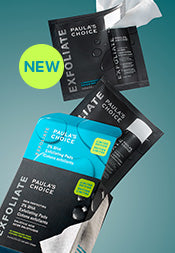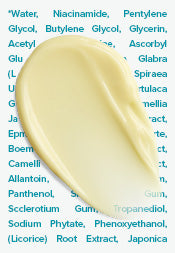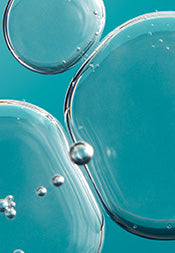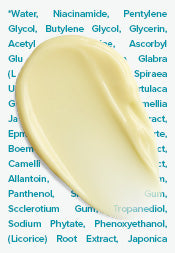How to Treat Teenage Acne
Tackling teen acne begins with an effective skincare routine, and it doesn’t have to be complicated. For most, it only takes four products: a facial cleanser, a leave-on face exfoliator that contains salicylic acid (BHA), a benzoyl peroxide product, and, for daytime, a super-light broad-spectrum sunscreen.
More information on how ideal morning and evening teenage skincare routines should look like can be found below—once you get the hang of things, you’ll be surprised at how easy and effective these routines can be. Clear skin will be its own reward.
Morning Skincare Routine for Teens
Cleanse with a face wash suitable for acne-prone skin. Choose a soap-free, water-soluble formula designed to be gentle (because harsher products can increase acne breakouts), but cleanse thoroughly. Use a soft washcloth or soft-bristle cleansing brush to make sure you remove excess oil.
- Apply a benzoyl peroxide treatment to all breakout-prone areas. Benzoyl peroxide is the gold-standard acne-fighting ingredient because it immediately targets the source of acne breakouts. Begin with a lower strength formula (2.5%) and see how your skin responds before moving to a higher strength (5%) option if needed.
- Exfoliate to help unclog pores with a gentle, leave-on liquid exfoliant for acne. You’ll be amazed at the difference a product like this makes—much better for acne than a harsh face scrub!
- Sun damage can make post-acne blemishes and scars worse, so daily sun protection is also an essential when caring for acne-prone skin. Skipping this step can cause the redness left behind from a breakout to linger. If you’ve tried sunscreens but found them too heavy or thick-feeling, you’re likely using the wrong product. A featherlight, oil-free sunscreen is likely to change your mind.
Nighttime Skincare for Teenagers
The evening skincare routine for teens is the exact same as the above morning routine, but minus the sunscreen. If your skin is dry or you notice some mild flaking, apply a thin layer of a lightweight, oil-free face moisturizer over those areas. You can dab it around your eyes for good measure, too.
Hidden Acne Triggers
The changes that occur during puberty aren’t the only factor behind teen acne. Other things that can trigger or make existing acne breakouts worse include:
- Not washing your face gently twice daily. Dirty skin does not cause acne, but not washing your face enough can lead to a buildup of oil and dead skin. This combo creates the perfect environment for acne and clogged pores. Overwashing can also agitate the skin and cause further breakouts. Stick to washing your face twice per day.
- Not being gentle. Overdoing cleansing with abrasive scrubs, stiff-bristle cleansing brushes, or products with skin-aggravating ingredients (such as SD, denatured alcohol, witch hazel, menthol, peppermint, essential oils, and citrus oils) will damage your skin’s surface. If your skin hurts or tingles when applying a product, that means that product in question is likely bad for your skin! Putting your skin in such weakened states means more pimples and oil production can occur, with post-acne marks probably staying around for a longer time as well.
- Not removing your makeup at night. Many teens cover up acne with makeup, but if you don’t remove all of your makeup every night, your acne treatments won’t work, and your clogged pores will only get worse. Make sure to also get effective makeup removers for your face.
- Inconsistent skincare: For teenagers and adults alike, the only way to have clearer skin is to follow a consistent, effective skincare routine. Consistency and patience are essential.
- Hairstyling products: Any creamy, waxy, or oily leave-on products applied to hair that falls on your face can cause acne breakouts in those areas. The solution? Keep hair off your face and use lighter hair-styling products!
Learn more about acne and breakouts here.
Shop highly rated skincare best sellers for acne-prone skin.
References for this information:
Journal of the European Academy of Dermatology and Venereology, June 2014, pages 733–740
Current Opinion in Pediatrics, August 2008, pages 436–440
Journal of Pediatric and Adolescent Gynecology, August 2008, pages 171–176
Journal of Cosmetic Science, January/February 2004, pages 65–80












